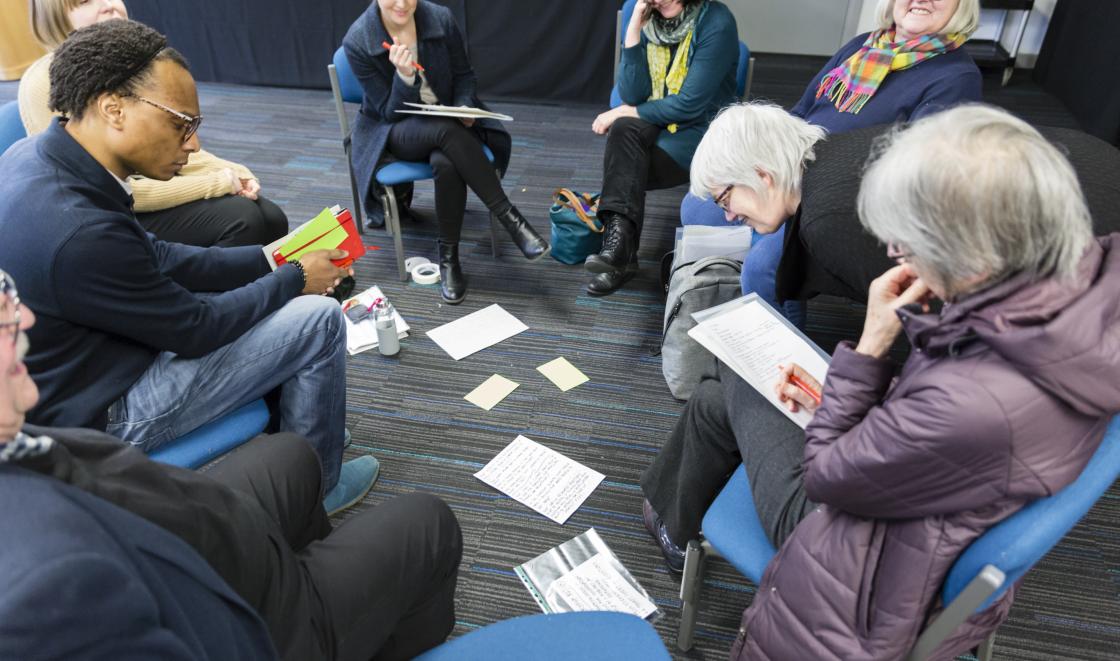One way to achieve this is through active collaboration with service users and members of the public, both in applied health research and in the decision- making practices of health and social care commissioners and providers. Most UK health research funders now expect applicants to include details on patient and public involvement (PPI) in proposed work.
Recent years have seen the emergence of the role of PPI lead, tasked with enabling sustainable collaborations between service users, researchers, clinicians and other partners. These leads are central to the successful integration of PPI in research, therefore mapping their skills, and the resources and support necessary to be effective in their role is essential to ensure inclusive and impactful involvement practice.
The aims of our research
We are conducting two interrelated projects:
● Project 1: A mixed-methods study to identify existing approaches to PPI in health and social care commissioning
● Project 2: The role of PPI leads in research
These two interrelated projects will:
● Explore how PPI is embedded in, and impacts, commissioning and service development within a changing NHS commissioning landscape
● Develop an evidence-based toolkit on optimising PPI in commissioning
● Contribute to the theoretical understanding of PPI using an interdisciplinary approach and innovative methodologies (e.g. relationship mapping)
● Explore how the PPI national standards are embedded in different research contexts
● Examine the barriers and facilitators to PPI engagement with seldom heard and underserved groups, people experiencing multimorbidities and health inequalities
● Utilise learning from both projects to strengthen PPI practice in all aspects of health and social care and in collaborative research environments.
How our work is addressing multimorbidities and inequalities
Working with a wide range of community and social care groups from a range of backgrounds, the projects will ensure that multimorbidities and inequalities are addressed. Project 1 will be exploring the impact of PPI, and representativeness across diverse groups, in commissioning. Project 2 focuses on examining how PPI practitioners engage with multimorbidities and health inequalities and how their insights can inform processes of care systems’ integration. The projects will be informed by regular presentations and collaborative work with the ARC strategic oversight group (SOG) and service user and public advisory groups.
Our collaborators
Collaborators include:
● ARC South London PPI coordinator
● ARC South London public health and multimorbidity theme
● ARC South London economics and biostatistics theme
● ARC East of England: Inclusive involvement in research theme
● PPI leads in the wider ARC community
● NHS Confederation
● Local clinical commissioning groups (CCGs), Healthwatch groups, local authorities and social care organisations, service user and carer organisations, NIHR Maudsley Biomedical Research Centre (BRC), NHS Trusts, public health and primary care groups.
How we are involving patients, services users, carers and public
The methodological approaches employed for both projects will ensure that patients, service users, carers and the public play a key role in all aspects of the projects.
Project 2 is led by a service user researcher and many PPI leads are themselves service users and carers. Service users, carers and the public will be represented on advisory groups. Active participants will have authorship on academic papers and advisory groups will be acknowledged.
Patient and public involvement in NHS healthcare commissioning decision-making
We worked with ARC South London's public health and multimorbidity theme to produce a scoping study of the 'Changing landscape of opportunities for patient and public involvement in NHS healthcare commissioning decision-making'. The study aims to explore how the new Clinical Commissioning Groups (CCGs), Sustainability and Transformation Partnerships (STPs) and Integrated Care Systems (ICS) in south London have engaged with patients and the public during the transition period, and to deepen insight into how PPI may operate in the future.
New toolkit to support patient and public involvement in health and social care commissioning
We have produced a new toolkit to support health and social care commissioning organisations to effectively involve patients and members of the public in their work, so that services better meet local needs and lead to improved health outcomes.
The toolkit was developed by working closely with NHS and local authority staff who are involved in PPI in commissioning, public contributors and voluntary and community services and groups. The content draws on in-depth interviews and a national survey, as well as feedback from commissioners, which was then collated and analysed.
Toolkit to support patient and public involvement in commissioning
How we are taking this work forward
We will build on our current work, aiming to amplify the voice of service users, public and communities through the development of research highlighting the importance of PPIE in a range of settings and using community peer-research methods. We also aim to develop greater diversity and inclusivity in peer research practice by focusing on the intersectionality of protected characteristics. We will continue to work with partners from local communities, NHS services and regional PPI networks.
Read more
Read the ARC BITE summary of project.


